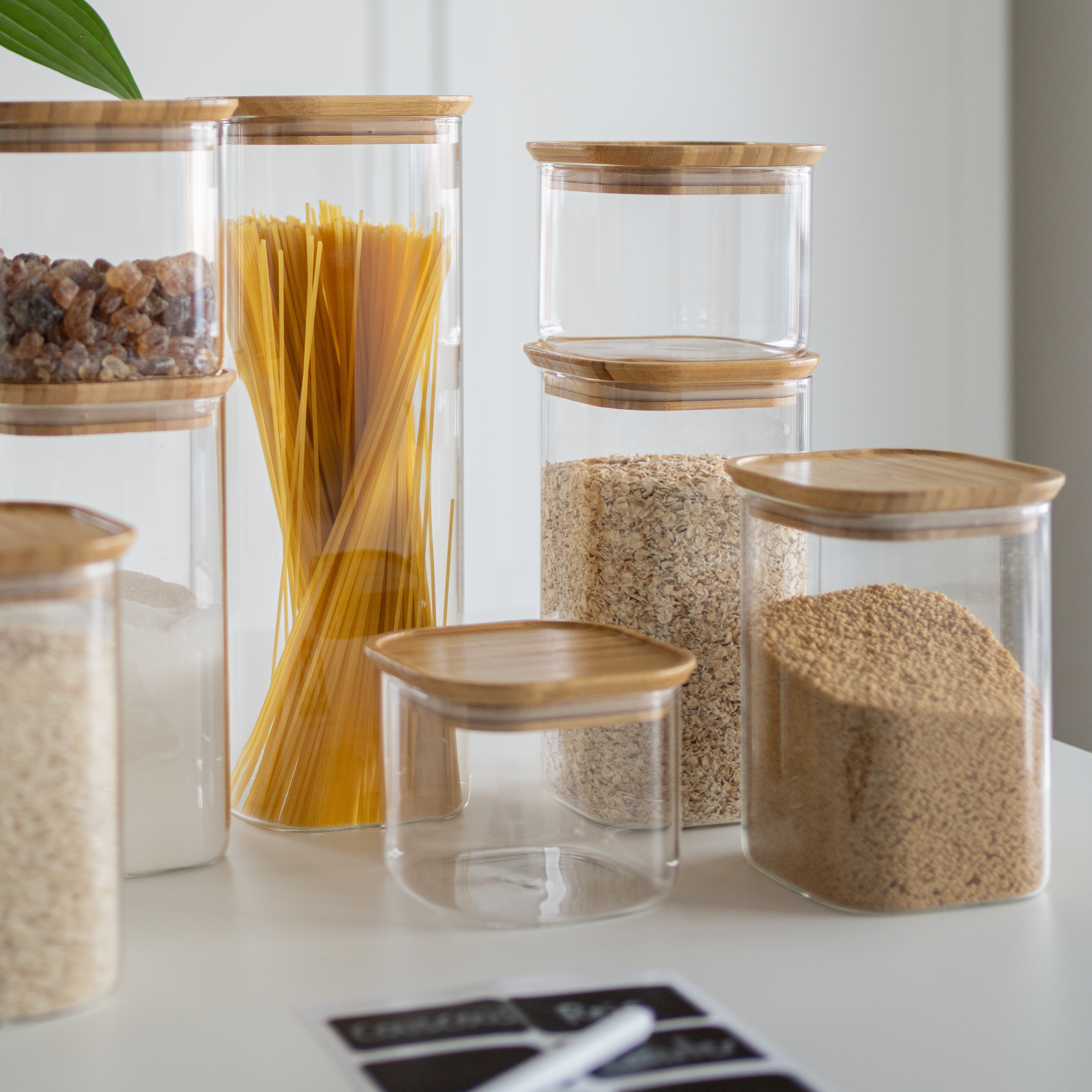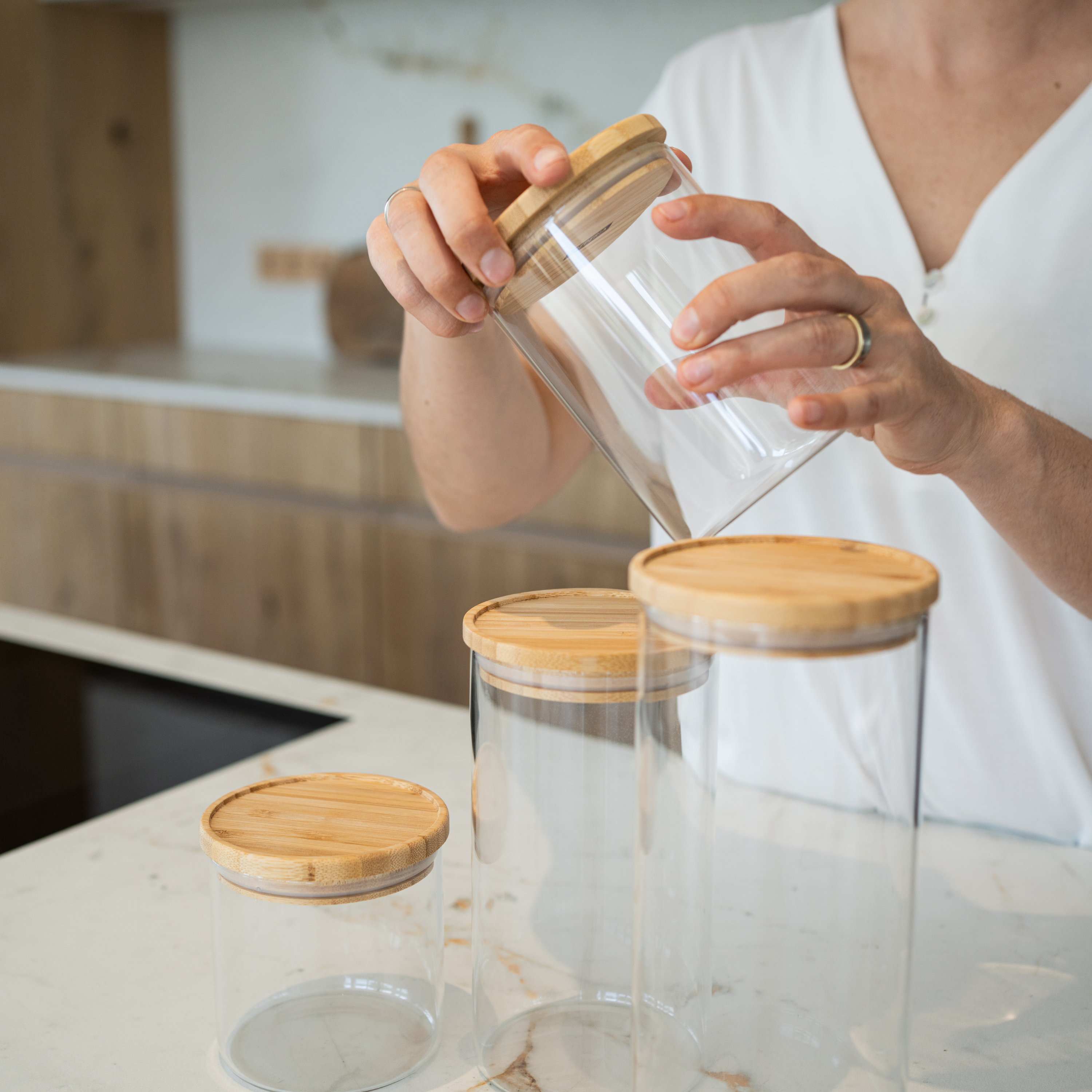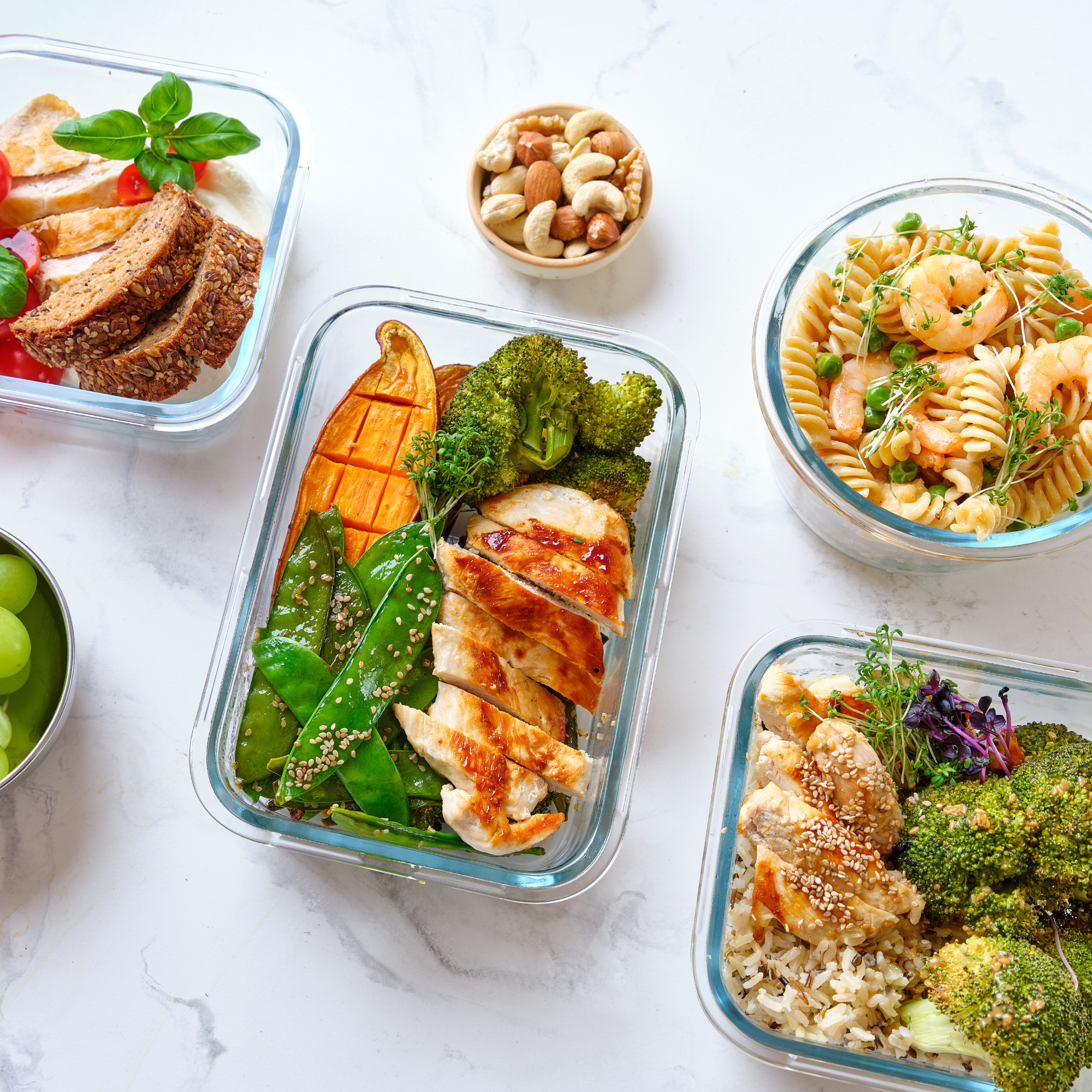If you have no experience in meal prep or are preparing meals for several people at once, planning can be very challenging at the beginning.
When should food be bought and how long does it take to prepare? What is the best way to store them and which steps should be done first?
Especially at the beginning, unnecessary mistakes are made during planning that make pre-cooking more difficult. Here you will find a list of common mistakes and we will give you our tips on how to avoid them as a meal prepper.
Cooking ahead - avoid these mistakes for a stress-free meal prep
There is a lot to consider when planning and meal prepping and, especially at the beginning, people often tend to set high goals or get lost in the details.
There are a few points that you should definitely bear in mind to avoid stress and enjoy planning your week.
Pay attention to detailed planning
The most common mistake is probably a lack of planning. You're probably familiar with this - you have a lot on your mind and you simply don't have the patience to sit down and think about meal planning in detail. Instead, you roughly think about a few meals in your head, go to the supermarket and end up buying all sorts of different foods that don't necessarily go together or are suitable for meal prep.

Instead of looking for inspiration for dishes in the supermarket, you should start thinking about what makes sense for you at home. Good planning includes taking a look in the fridge or pantry to use up food that has been out for a while or is particularly sensitive.
Once you have an overview of which foods you have a lot of at home or which leftovers are usually left over, you can use these ingredients as a basis for finding recipes that are suitable for takeaway.
This not only saves you a lot of time, but also reduces the effort involved and allows you to keep track of even the most complex menus.
Don't buy food too early
You would prefer to prepare everything very quickly and then store it in the fridge so that you don't have to think about it for the rest of the week.
Although meal prepping definitely makes the work easier and saves you stress, there are a few things to bear in mind.
You can't necessarily buy all the ingredients at once, as you may not have enough space in the fridge and some foods go bad quickly. This means you don't have to go bulk shopping every time you want to meal prep, but can do the most important steps on a day off and buy the remaining ingredients later and add them to dishes or heat them up.
Some ingredients, for example, should only be bought directly before preparation so that you can enjoy them fresh the next day.
You should definitely take this into account when creating your weekly meal prep plans and plan the shopping or completion of certain steps well in advance.
Avoid complicated and unusual meal prep recipes
If you're just starting out with meal prep and want to try out lots of new recipes with a variety of ingredients, you can quickly overwhelm yourself. With recipes like these, you usually don't know the ingredients yet, have no experience of how long it actually takes to prepare them and the dish doesn't always turn out right.
This doesn't necessarily make your everyday life any easier, but costs you more time and energy, which can quickly become frustrating and demotivating.
In order to find your own system and get used to the new routine, it is therefore very practical to cook familiar dishes at the beginning. These may not be anything special and don't necessarily resemble the photos of great recipes on the internet, but they are quick and you can prepare your lunch in a relaxed manner.
If you do want to try something new, you can find many easy recipes to cook ahead here.

Avoid too many different ingredients
When choosing recipes for the Meal Prep Plan, most meals are not related and different products are used for each recipe. This may make your meal varied, but the preparation is more than time-consuming, your shopping list becomes unnecessarily long and it costs you a lot of money.
When planning meals for several days, it's worth choosing recipes that are based on the same ingredients. This means you can eat potatoes or rice on two days and vary the sauces and seasonings. For example, you can make a potato gratin on one day and use the already peeled and cooked potatoes for a soup, stew, quiche or casserole on another day.
This will save you a lot of time and you can chop all the vegetables for the next few days at once, which will make a few steps easier for you afterwards.
Plan enough preparation time
If you are looking forward to a day off and want to prepare the food for the next week as quickly as possible, it can happen that the preparation time is significantly underestimated.
Full meals can therefore not be prepared quickly in between meals, but require sufficient planning and preparation.
So that you don't get so stressed when cooking, you should plan the preparation time into your daily routine or do small work steps in between.
In this article, you can find out what types of meal prep there are and how you can go about it. (link article)
Whether for a low carb diet, recipes for losing weight or building muscle, meal prepping helps you to keep control of your diet and makes everyday life easier. And that's exactly what planning and preparation is all about. As the term meal prep suggests, you should always focus on a diet that is right for you and not overwhelm yourself unnecessarily as a beginner.
Make the meal prep trend a support in your everyday working life and give yourself time to find your own routine.
Choose recipes and ingredients that make your everyday life easier, not more difficult. Plan your meal preparation in such a way that it is enjoyable and not unnecessarily stressful.




